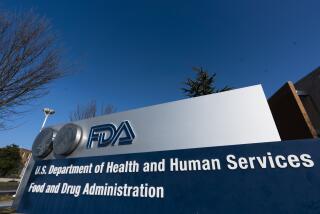Lung cancer drug crizotinib sharply increases survival in patients with a specific gene mutation
An experimental drug called crizotinib sharply increases survival in lung cancer patients with a specific genetic mutation, researchers said Sunday. Although only about 4% of lung cancer patients carry the mutation, that still amounts to about 50,000 people worldwide, experts said.
Researchers hope that other new drugs targeted at different mutations will be also developed and that combinations of such targeted drugs will prove even more effective in lung cancer. Lung cancer is the second-most-common form of cancer in the United States and the biggest cancer killer among both men and women, with 371,000 cases diagnosed each year and 159,000 deaths.
The gene in question is called anaplastic lymphoma kinase, or ALK, which is thought to be active in several different types of tumors, including about one in every 20 non-small-cell lung cancers. Crizotinib is a direct inhibitor of the enzyme produced by the mutated gene. Trials of crizotinib against lung tumors have been underway since 2006, and the drug was recently shifted by the Food and Drug Administration into the âfast trackâ category, which means the drugâs manufacturer, Pfizer Inc., can begin submitting efficacy data to the agency without waiting for studies to be completed.
Dr. Alice Shaw of the Massachusetts General Hospital Cancer Center reported on a study of 119 patients with ALK-positive lung cancer. After one year, 74% of the patients were still alive; after two years, 54% were still living. The study did not have a control group, but other studies using conventional chemotherapy for similar patients have found a 44% survival after one year and 12% survival after two years, Shaw said.
Separately, Dr. D. Ross Camidge of the University of Colorado Cancer Center reported that, in the same group of patients the drug produced shrinkage in a majority of tumors and a dramatic response in more than 60% of them. The responses lasted about 48 weeks, he added.
The overall results are âtruly brilliant,â said Dr. Nasser H. Hanna of Indiana University, a member of the discussion panel at the session where the results were presented. The acid test, he said, will come in an ongoing trial in which crizotinib is compared directly to standard chemotherapy for the tumors.
The FDA is expected to approve the drug later this year. Analysts predict annual sales will peak at about $2.5 billion within a decade.




